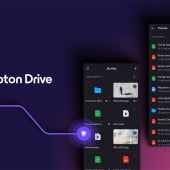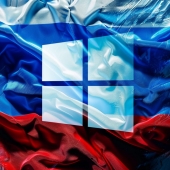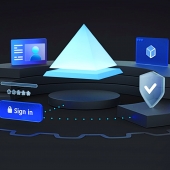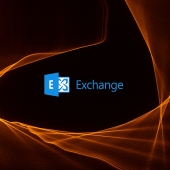-
Proton launches free, privacy-focused Google Docs alternative
Proton has launched 'Docs in Proton Drive,' a free and open-source end-to-end encrypted web-based document editing and collaboration tool.
- July 03, 2024
- 06:00 AM
 0
0
-
BBC suffers data breach impacting current, former employees
The BBC has disclosed a data security incident that occurred on May 21, involving unauthorized access to files hosted on a cloud-based service, compromising the personal information of BBC Pension Scheme members.
- May 30, 2024
- 10:02 AM
 0
0
-
Microsoft to shut down 50 cloud services for Russian businesses
Microsoft plans to limit access to over fifty cloud products for Russian organizations by the end of March as part of the sanctions requirements against the country issued by EU regulators last December.
- March 23, 2024
- 10:14 AM
 2
2
-
Hackers abuse Google Cloud Run in massive banking trojan campaign
Security researchers are warning of hackers abusing the Google Cloud Run service to distribute massive volumes of banking trojans like Astaroth, Mekotio, and Ousaban.
- February 21, 2024
- 04:07 PM
 0
0
-
Ongoing Microsoft Azure account hijacking campaign targets executives
A phishing campaign detected in late November 2023 has compromised hundreds of user accounts in dozens of Microsoft Azure environments, including those of senior executives.
- February 12, 2024
- 02:16 PM
 0
0
-
Leaky Vessels flaws allow hackers to escape Docker, runc containers
Four vulnerabilities collectively called "Leaky Vessels" allow hackers to escape containers and access data on the underlying host operating system.
- February 04, 2024
- 10:17 AM
 0
0
-
Hacker spins up 1 million virtual servers to illegally mine crypto
A 29-year-old man in Ukraine was arrested this week for using hacked accounts to create 1 million virtual servers used to mine $2 million in cryptocurrency.
- January 13, 2024
- 10:09 AM
 4
4
-
WordPress hosting service Kinsta targeted by Google phishing ads
WordPress hosting provider Kinsta is warning customers that Google ads have been observed promoting phishing sites to steal hosting credentials.
- December 17, 2023
- 06:46 PM
 0
0
-
Hackers start exploiting critical ownCloud flaw, patch now
Hackers are exploiting a critical ownCloud vulnerability tracked as CVE-2023-49103 that exposes admin passwords, mail server credentials, and license keys in containerized deployments.
- November 28, 2023
- 11:14 AM
 0
0
-
Google Drive users angry over losing months of stored data
Google Drive users are reporting that recent files stored in the cloud have suddenly disappeared, with the cloud service reverting to a storage snapshot as it was around April-May 2023.
- November 27, 2023
- 09:52 AM
 11
11
-
Critical bug in ownCloud file sharing app exposes admin passwords
Open source file sharing software ownCloud is warning of three critical-severity security vulnerabilities, including one that can expose administrator passwords and mail server credentials.
- November 24, 2023
- 01:14 PM
 3
3
-
Hackers exploit Looney Tunables Linux bug, steal cloud creds
The operators of the Kinsing malware are targeting cloud environments with systems vulnerable to "Looney Tunables," a Linux security issue identified as CVE-2023-4911 that allows a local attacker to gain root privileges on the system.
- November 06, 2023
- 03:26 PM
 0
0
-
QNAP warns of critical command injection flaws in QTS OS, apps
QNAP Systems published security advisories for two critical command injection vulnerabilities that impact multiple versions of the QTS operating system and applications on its network-attached storage (NAS) devices.
- November 06, 2023
- 07:47 AM
 0
0
-
Qubitstrike attacks rootkit Jupyter Linux servers to steal credentials
Hackers are scanning for internet-exposed Jupyter Notebooks to breach servers and deploy a cocktail of malware consisting of a Linux rootkit, crypto miners, and password-stealing scripts.
- October 18, 2023
- 06:00 AM
 0
0
-
Amazon to make MFA mandatory for 'root' AWS accounts by mid-2024
Amazon will require all privileged AWS (Amazon Web Services) accounts to use multi-factor authentication (MFA) for stronger protection against account hijacks leading to data breaches, starting in mid-2024.
- October 05, 2023
- 01:06 PM
 2
2
-
Microsoft: Hackers target Azure cloud VMs via breached SQL servers
Hackers have been observed trying to breach cloud environments through Microsoft SQL Servers vulnerable to SQL injection.
- October 04, 2023
- 10:53 AM
 0
0
-
Hackers exploit MinIO storage system to breach corporate networks
Hackers are exploiting two recent MinIO vulnerabilities to breach object storage systems and access private information, execute arbitrary code, and potentially take over servers.
- September 04, 2023
- 12:45 PM
 0
0
-
Hosting firm says it lost all customer data after ransomware attack
Danish hosting firms CloudNordic and AzeroCloud have suffered ransomware attacks, causing the loss of the majority of customer data and forcing the hosting providers to shut down all systems, including websites, email, and customer sites.
- August 23, 2023
- 10:40 AM
 8
8
-
US cyber safety board to analyze Microsoft Exchange hack of govt emails
The Department of Homeland Security's Cyber Safety Review Board (CSRB) has announced plans to conduct an in-depth review of cloud security practices following recent Chinese hacks of Microsoft Exchange accounts used by US government agencies.
- August 11, 2023
- 01:35 PM
 0
0
-
New Microsoft Azure AD CTS feature can be abused for lateral movement
Microsoft's new Azure Active Directory Cross-Tenant Synchronization (CTS) feature, introduced in June 2023, has created a new potential attack surface that might allow threat actors to more easily spread laterally to other Azure tenants.
- August 03, 2023
- 06:55 PM
 1
1


 0
0























